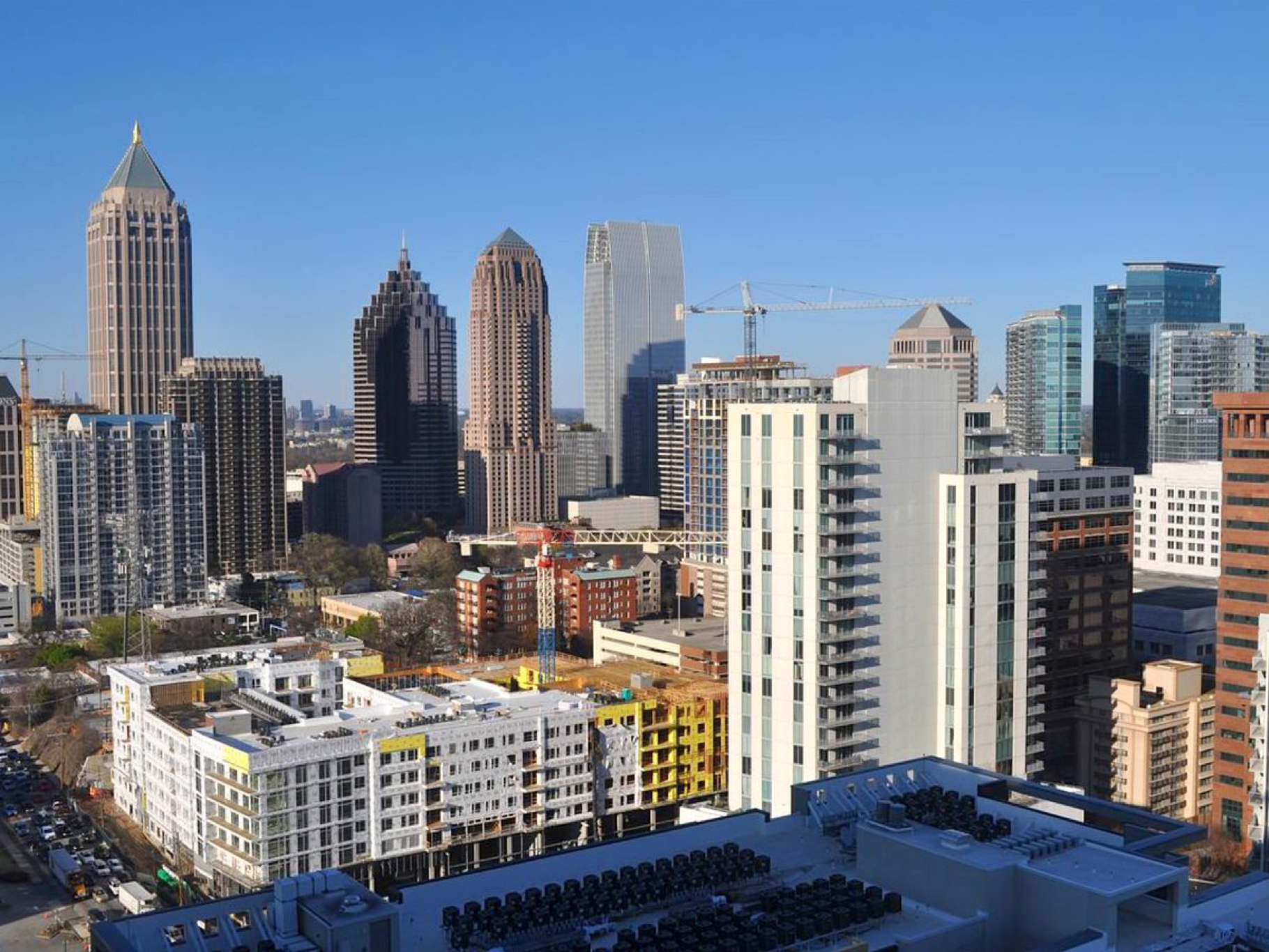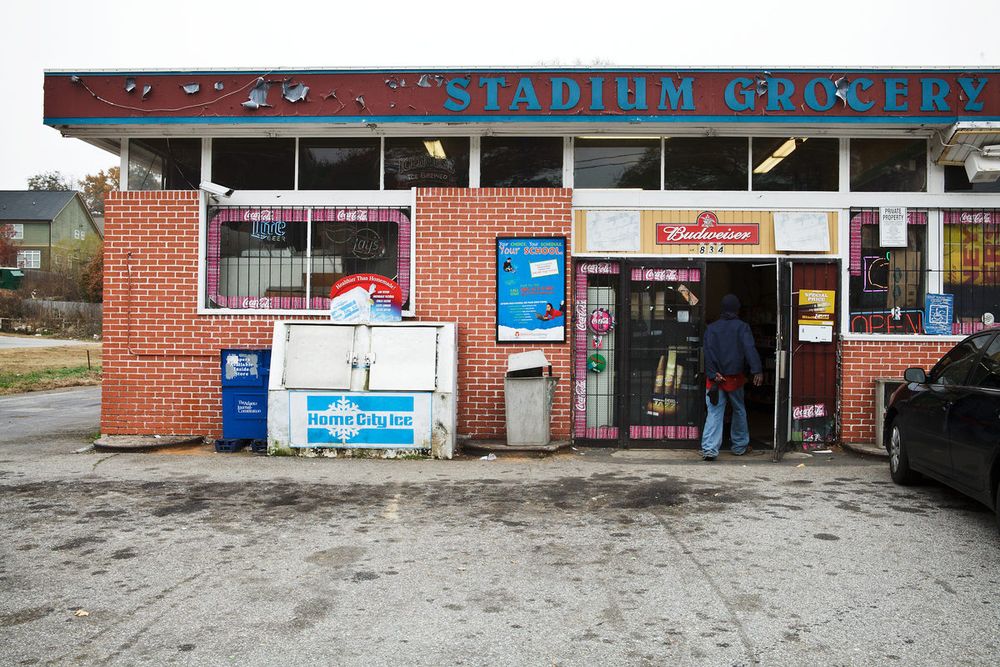By: Victoria Barker
Over the past year, a global movement has risen to combat modern-day slavery, sparking a realization that slavery did not end 150 years ago with the signing of the Emancipation Proclamation. As this comes to light, people are beginning to examine the reasons why slavery is a larger industry today than at any other time in history. Even more shocking is the realization that Atlanta is a global hub for this business.
Photos used to incite activism show distant lands where slaves work in mines and brick factories, or karaoke bars lining the dusty streets of Southeast Asia where underage girls are bought and sold night after night. If we do not see these scenes play out across our state, how could Atlanta be one of the top 14 cities for human trafficking worldwide? The answer is simple: trafficking in Georgia, and in much of the United States, has been swept under the rug of societal norms and political motivations. Atlanta is home to an easily accessible airport, multiple Fortune 500 companies, and one of the strongest economies in the nation, despite the recession. U.S. Attorney Sally Yates explains, “It used to be, particularly with respect to child sex trafficking, if someone wanted to have sex with a child they needed to go to Thailand. Well now, a man can fly into Atlanta, have sex with a child and be home for dinner.” The particular example that Yates cites (child sex trafficking) is that which prevalently plagues Georgia. Child sex trafficking occurs in most neighborhoods and does not merely affect the impoverished, but people of all demographic backgrounds.
Throughout the United States, and more specifically Georgia, child prostitution is a growing form of slavery, with the average age of a child first used in prostitution falling between 11 and 14 years old. Minors are physically and verbally abused into submitting to the desires of “pimps” and “johns” and exploited time and time again as a renewable resource for the black market economic monopoly. The statistics associated with the victims of the Commercial Sexual Exploitation of Children (CSEC) are staggering. In the United States, one in four girls are sexually abused before the age of 18, and on a typical night in Georgia, 100 of these girls are raped for profit.
Even with all the evidence showing that these girls (and boys) are victims of criminal acts of prostitution, Georgia state law dictates that these children can be prosecuted for the very act to which they were victims, all the while ignoring the factor of coercion. According to The National Report of Domestic Sex Trafficking, “victims of minor sex trafficking often do not self-identify as victims, and deny victimization due to fear of the physical and psychological abuse inflicted by the trafficker and pimp, as well as because of the trauma bonds developed through the victimization process.” Consequently, the argument for these children being charged as criminals, rather than aided as victims, is furthered. However, indicting these minors for prostitution stands in contradiction to Georgia’s law that the legal age to consent to sex is 16.
Georgia has laws in place intended to protect trafficking victims —O.C.G.A 16-5-46, which prohibits the trafficking of persons for sexual servitude, and Georgia Code 19-7-5, which is intended to “provide protection of children whose health and welfare are adversely affected and further threatened by the conduct of those responsible for their care and protection.” According to O.C.G.A. 16-6-3 “a person commits the offense of statutory rape when he or she engages in sexual intercourse with any person under the age of 16 years,” yet in the business of commercial sexual exploitation, the law does not protect minors due to the economic factor of money being exchanged in return for services. These laws are coming up short, and there has to be a better option.
According to Carolina De Los Rios, the Director of Client Services for Polaris Project, “Safe Harbor laws are that better option. These laws define these sexually exploited children as victims of abuse, help them find protection and support, and grant them immunity from prosecution for prostitution while they are under 18 years of age.” CSEC victims require comprehensive, coordinated care that they are not receiving under Georgia’s current legislation. When treated as criminals rather than as traumatized victims, it is likely that they will return to the streets as soon as they are released.
New York passed The Safe Harbor Act in 2008 and became the first state to recognize minors that have been victims of sexual exploitation as victims rather than criminals. This legislation removed minor victims of commercial sexual exploitation from the jurisdiction of the criminal justice and delinquency systems, preventing them from being criminalized. The law also protects the children by providing them with specialized services through which they are viewed as victims of a crime who have experienced trauma unique to CSEC victims. These services are imperative, as 65 percent of CSEC victims deal with post-traumatic stress disorder and 52 percent experience educational losses. And even further, this is not just an issue of emotional distress, but one that is actually of life and death, as the average life expectancy of a girl in forced prostitution is seven years, with homicide or HIV/ Aids cited as the main causes of death.
While it is not ascertainable why Safe Harbor laws have not been implemented it Georgia, it is hypothesized that the economic toll that these laws would take on the state, as they require recovery programs for CSEC victims, is a plausible argument.
Perhaps a Safe Harbor law, such as the one passed by New York in 2008, would help curb the growth of the illegal sex industry in Georgia that oftentimes victimizes young children. New York’s watershed legislation could be a common statute in the governing bodies of all states in efforts to domestically combat one facet of what could easily be deemed one of the greatest injustices of our time — modern-day slavery. And it seems to be that people are finally taking notice with the expectation that our governing bodies will do the same.
On Thursday, Feb. 7, hundreds of people gathered at the State Capitol to urge lawmakers to pass Safe Harbor legislation. As more voices are raised and other states implement similar laws, it is likely that Georgia will follow suit. The state should strive to be known as home to Hartsfield-Jackson airport, the 1996 Olympic Games, Coca- Cola, and Chick-Fil-A, Martin Luther King Jr. — not child prostitution.

